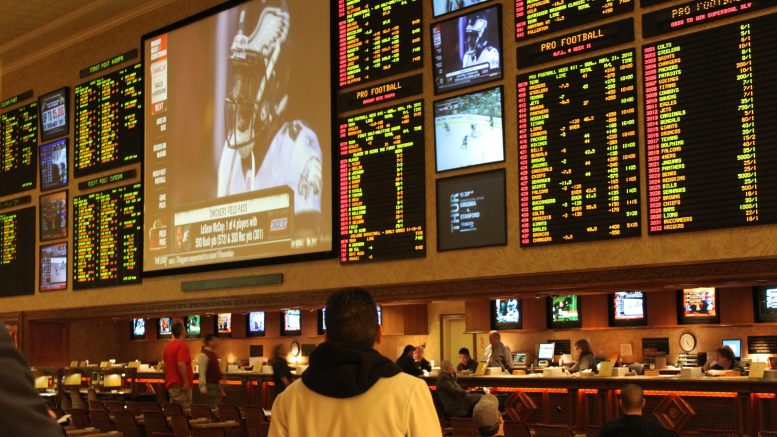By Scion Estrella (’25) and Eugene Caibal (’25)
Sports betting is increasing in popularity nationwide, particularly among teens. After the Professional and Amateur Sports Protection Act, which banned sports betting outside a handful of states, was overturned by the Supreme Court in 2018, states like
Connecticut seized on the opportunity to establish themselves in this newfound market.
This all came to a head in 2021, when the Mashantucket Pequot Tribal Nation, Foxwoods Resort Casino, and DraftKings formed a partnership that officially brought the now 83-billion-dollar industry to the Nutmeg State. Since then, sports betting has become an increasingly casual affair, it has even made it to the halls of Westhill High School.
“It’s kind of a wild, wild west right now,” one senior, who we have chosen to remain anonymous, said about the state of sports gambling regulation among teens. “I don’t know what you could do [to stop it]. If people have money and they wanna spend it, they’re gonna spend.”
Though gambling in general is banned for those under the age of 21 in Connecticut, there are students at Westhill who continue to partake in the activity, viewing it more as a recreational activity rather than something that should be punished.
“If me and [the guy sitting next to me] were able to make a bet with each other, 20 bucks for a game, […] I think that’s a good thing,” the senior said. “That’s just friendly competition.”
Some of the more mainstream apps on the market like Fanduel and DraftKings will require you to provide a social security number that verifies a customer’s age. However, the students we spoke to say they have a loophole around this requirement. “If you have [the social security number of] someone of age, it’s not hard,” one Westhill alum, who started betting in his junior year, said.
“There’s not much more they can do besides asking for social security numbers,” the alum, commenting on the security measures put in place, said. “That’s the best they can probably do.”
Yet even this measure is circumvented by the current senior: he bets using a DraftKings account created under his father’s social security number, yet the winnings are deposited into a bank account registered under his. His DraftKings account has never been flagged for this discrepancy, he said.
At Westhill, there are entire student-run fantasy leagues, but most do not require a buy-in and are merely “for fun,” the senior said. According to the senior, the two leagues he participates in have more than a dozen members combined, and that count, he said, is growing.
Betting is particularly popular among young male students at Westhill, which is reflective of the current social media environment through gambling companies like Stake.com and Barstool Sports. These companies routinely advertise their brand by reposting viral video content on their seemingly mundane meme accounts, hosted by platforms such as TikTok and Instagram.
The accounts of these companies repost videos dozens of times a week, and their prolific posting habits are what Jack O’Donnell, a guest opinion writer for Politico, called a part of “a strategic and methodical effort to make sports betting seem no different than going to the grocery store to pick up a loaf of bread.”
Though gambling is illegal in Connecticut for those under 21, gambling companies like Stake.com and Barstool routinely use apps frequented by minors as a part of their brand engagement strategy.
This has had a direct effect on the Westhill senior, who says his betting strategy revolves around these same Instagram accounts, such as Barstool, posting their top picks for a given day based on the odds of that event occurring in-game, whether it be an interception or a touchdown. Both the senior and the alum characterize gambling as “a quick way to make money on the side.”
“[It can] be negative, could be positive, it just depends on how much [students are] doing it,” the alum, who is under 21, said.
According to the US Surgeon General, teens are two to four times more susceptible to developing a gambling problem than adults. Because the human brain does not fully develop until the age of 25, teens are less likely to make good, reasonable decisions, making them more at risk for developing addiction.
While acknowledging the potential harm posed by online sports betting’s rise, the current senior believes that under-the-table betting, such as small wagers between friends, is a healthy habit, and one that builds character.
As someone who forbids himself from putting more than $20 down once or twice a week, he said he is wise enough to know when to cut his losses.
“It’s all luck,” he said. “You can put yourself in a better chance to get lucky, though. Success is when preparation and luck meet.” However, when asked if he would ever stop, he said he would only do so “When I go broke.”

